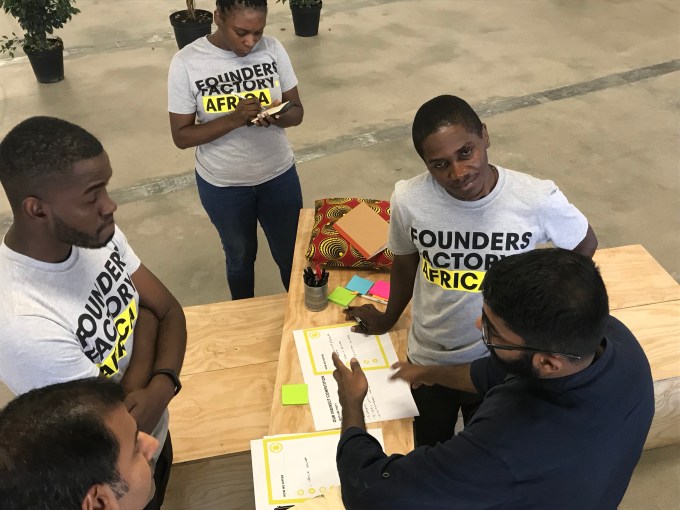Johannesburg-based investment company Founders Factory Africa (FFA) today announced a partnership with Small Foundation that will see it select 18 agritech startups for an acceleration and incubation program.
Small Foundation is a Dublin-based philanthropic organization that focuses on the rural and agriculture sector in sub-Saharan Africa. With this partnership, Small Foundation is making an undisclosed investment in FFA to build and scale agritech startups on the continent.
“The partnership stands to make a significant impact across the continent by supporting agritech startups who can innovate and improve the delivery of a range of services to smallholder farmers and micro, small and medium-sized enterprises in the agricultural sector,” an excerpt in a statement read.
According to the South African-based venture development and investment company founded by Roo Rogers and Alina Truhina, early-stage founders will need to apply to join the Founders Factory Africa Venture Scale or Venture Build portfolios. These startups will have access to funding between $100,000 to $250,000 and hands-on technical support.
This is a change from when the company launched in 2018. FFA is an extension of the Founders Factory organisation that has invested in more than 130 companies globally. In 2018, FFA launched its first vertical in fintech when it partnered with the continent’s largest bank, Standard Bank, to invest in fintech startups. Some of the startups include Bwala, LipaLater, MVXchange and OkHi.
The following year, it took on a second investor in South African healthcare company Netcare Group and, via the partnership, invested in health-tech startups like RxAll, Redbird and Wellahealth.
Last year when we reported this partnership, startups in FFA’s Venture Scale accelerator program received a £30,000 cash investment and £220,000 in support services. Those in the Venture Build program received £60,000 cash and £100,000 toward support.
For this third partnership, Truhina says FFA will be investing a total of $300,000 in cash and hands-on support for companies in its Venture Scale program. However, startups in Venture Build will be receiving up to $250,000 in funding.
The Venture Scale program involves providing support for existing startups operating in seed to pre-Series A stages. On the other hand, the Venture Build program is for founders wanting to launch a startup in Africa, who may or may not have a concept or an idea.
Currently, there are 23 companies across FFA’s Scale and Build portfolios. These startups, mainly from Ghana, Kenya, Nigeria and South Africa, have collectively raised more than $7 million during and after the program. Truhina says FFA plans to increase this number to nearly 90 startups in total by 2024.
“We will build, scale and invest in 88 startups with current FFA investors (Standard Bank, Netcare and Small Foundation) until 2024. We plan to continue to take on new investors and continue to work on the continent indefinitely,” she said.

While FFA is dedicating a fund for agritech startups, it has invested in other startups with agritech solutions for instance Nigeria’s Foodlocker. The company forecasts foodstuff demand through machine learning and helps buyers procure goods from smallholder farmers. But despite this proposition, FFA classifies the startup as a fintech investment.
“Foodlocker was a company we selected and invested in under our Fintech portfolio, as the startup has a financial component. With Small Foundation, we are setting up a new dedicated agritech sector,” said Truhina. Small Foundation joins Standard Bank and Netcare in the peculiarity of assistance offered to FFA portfolio startups. From sector expertise and footprint across the continent to access to clients, POCs and pilots, these investors are trying to fill in the gap in sectors ripe for exponential growth.
But though fintech has caught on well with both local and international investors, the same cannot be said for health tech and agritech. According to Briter Bridges, fintech accounted for 31% of the total $1.3 billion raised by African startups. Health-tech startups accounted for 9%, while agritech startups represented just 7%.
Small Foundation wants to improve this number in its own little way, and concurrently has a plan to “end extreme poverty in sub-Saharan Africa by 2030.” Conor Brosnan, the CEO and chair of the foundation, holds that tackling the sector’s biggest issues with the FFA will bring the company toward achieving this objective.
“This is a pivotal time to invest in the growing area of agritech in Africa, which has transformative potential for local livelihoods. We are excited to see FFA’s highly skilled teamwork with immensely talented African entrepreneurs to deliver scaled solutions to some of the biggest challenges faced by the sector,” he said.
In three years, Founders Factory Africa has managed to enlist the services and finances of three influential partners. Yet, it has 55 more startups to invest in before 2024, so we should expect an increased investment activity and more partnerships to fund startups in other sectors.
The firm also has fresh capital in the works for its portfolio companies as it advances, though. It’s in the process of raising a $35 million “Africa Seed Fund” which will exist alongside FFA and execute follow-on capital in some portfolio companies.
Founders Factory Africa partners with Small Foundation to invest in 18 agritech startups posted first on http://bestpricesmartphones.blogspot.com
No comments:
Post a Comment